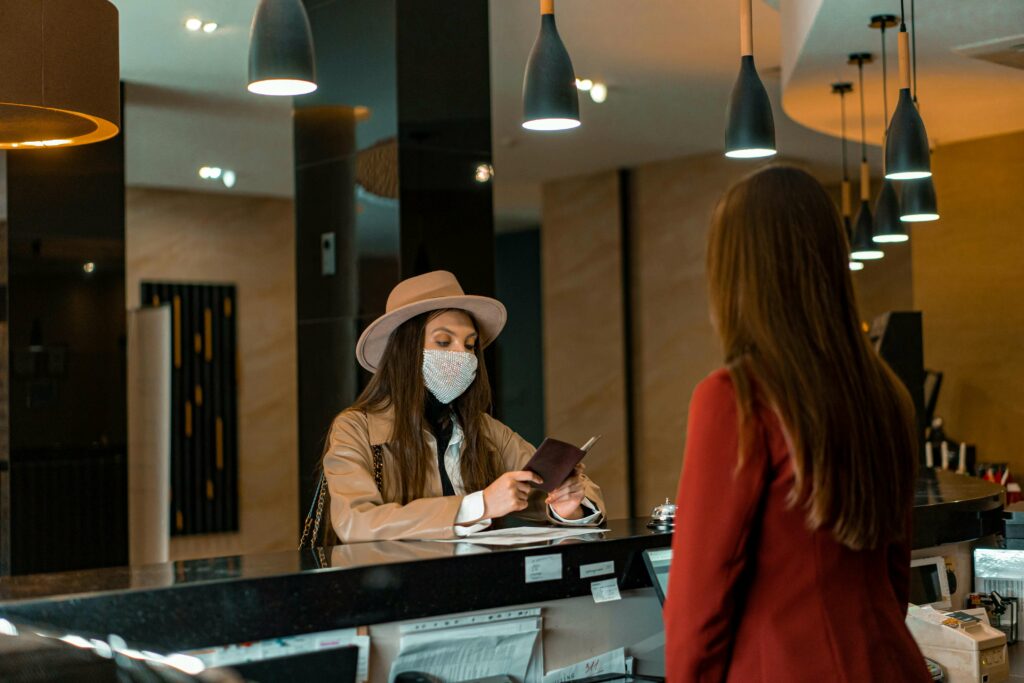Managing personal data during check-in is a crucial aspect for hotels, yet it often raises legal questions, especially in countries such as Spain, which has one of the most restrictive data registration laws in the world.
With the new rules and regulations, one of the most common concerns among hoteliers in this country is whether it’s legal to request a guest’s ID or passport during check-in and, more importantly, whether it can be photocopied or scanned.
In this article, we clarify these questions based on current Spanish regulations and provide best practices to ensure legal compliance while improving guest relations.
1. Is it mandatory to request an ID or passport from guests during hotel check-in?
Yes, Spanish law requires hospitality establishments (hotels, resorts, hostels, campgrounds, etc.) to identify all their guests.
There are two key laws that hoteliers need to be aware of:
- Organic Law 4/2015 on Citizen Security, which mandates that hotels must collect certain guest data and report it to authorities. It also outlines penalties for non-compliance with this and other related regulations.
- Royal Decree 933/2021, which sets the obligations for guest registration. You can find all the details on compliance and required data in our Guide to Spanish Royal Decree 933/2021 and guest registration.
The collected check-in data must be submitted to the authorities via the SES.HOSPEDAJES platform of the Ministry of the Interior.
2. Is it legal to photocopy a guest’s ID in a hotel?
Photocopying a guest’s ID is not necessary to comply with the regulations and may violate the General Data Protection Regulation (GDPR).
Hotels are required to register only the legally required data, without keeping a copy of the document.
3. Is it legal to scan a guest’s ID in a hotel?
Scanning an ID using physical scanners or printers may violate the GDPR, as these devices store a digital image of the identity document, which may not be permitted.
Hotels should only extract the legally required data from the document without storing an image or copy, whether in physical (photocopy) or digital format.
However, hotels can use scanning tools that solely extract the necessary legal data to store or autofill the check-in form. These tools streamline the check-in process for guests while ensuring compliance, as they don’t retain the document’s image.
4. Why hoteliers should avoid photocopying IDs in hotels
If a hotel decides to photocopy an ID and store a physical or digital copy, it could face sanctions for non-compliance with the GDPR.
There have already been cases where the Spanish Data Protection Agency (AEPD) has fined establishments for collecting and storing ID document images or data improperly.

5. Best practices for managing and protecting guest check-in data
To comply with guest registration laws, data protection regulations, and ensure a secure experience for guests, hotels should follow these recommendations:
1. Digitize the check-in process with management software
Using an online check-in solution speeds up the process, ensures compliance, and eliminates risks associated with manual document handling. These tools typically include a digital scanner that only extracts the necessary data without storing physical copies.
2. Inform guests about data protection regulations
It’s essential to explain why an ID is requested and how the data is managed. These regulations can cause confusion or distrust among guests if they don’t understand why hotels must collect and verify their information. Providing clear information helps build trust in both the hotel and its staff.
3. Avoid photocopying IDs unless legally justified
If it is necessary to keep a copy of the document, explicit guest consent must be obtained, and legal justification for storing the copy must be provided. However, this is not recommended due to the reasons explained above.
6. Conclusion
Requesting an ID during hotel check-in in Spain is a legal requirement to collect and verify necessary guest data, but photocopying it is not mandatory in most cases and may violate data protection laws.
To ensure compliance and enhance the guest experience, the best solution is to digitize the check-in process and automatically send guest registration reports using secure and efficient tools.
If you want to optimize your hotel management and ensure compliance with Spanish guest registration laws and the GDPR, consider implementing Online Check-in by Civitfun at your hotel. This will not only streamline daily operations but also improve guest satisfaction and boost your revenue.